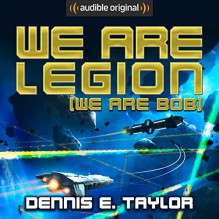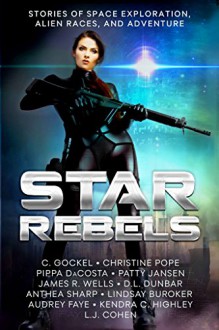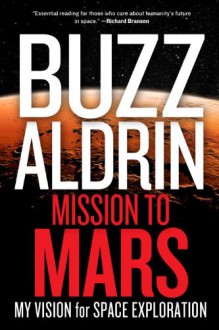
Thanks to Rosie Croft from Pen & Sword for sending me an early hardback copy of this book, which I freely chose to review. What a blast!
There are events that become fixed on people’s minds, either because they witnessed them and felt they were momentous, or because the impact of the news when they heard them made them remember forever the moment when they heard about it and what they were doing at the time. Some become part of the collective memory. The first manned mission to land on the Moon is one of those. As I was a very young child (four years old, if you want to know), I don’t remember it, but I do remember my father recounting having gone to a neighbour’s to watch it as we didn’t have a TV at home at the time. And I’ve watched the images, seen pictures, and read articles and watched documentaries about it over the years, but no, I didn’t experience it live at the time. So, on this year of the fiftieth anniversary, I couldn’t resist this book. And I thoroughly enjoyed it.
The author collects an incredible amount of information from a large variety of sources (there is a bibliography at the end, which includes the sources although not the specific details of each and every one of the articles and news items, as that would have taken more space than the book itself), and manages to select the most informative, wide-ranging, thought-provoking, and entertaining materials, creating a fun and gripping reading experience that, although we know where it’s going, never gets boring. He is also at pains to try to provide a balanced view of the facts, collecting as well the voices of those opposing the project for a variety of reasons (mainly economic, to do with poverty and conditions in the USA, but also some for religious reasons, and others due to the fear of what that might mean for humanity and the likelihood of space’s exploitation for war purposes).
Passingham lets the materials speak for themselves in most instances (and it is a joy to read the opinions of the general public at a time before social media gave everybody the tools to share their voice with the rest of the world), and he does so while creating an easy to read and compelling account of events that evidence his professionalism and his experience as a journalist. Where some authors would feel tempted to butt in and make explicit their points of view, here we are allowed to make our own minds up.
After a first chapter called ‘Race to the Moon: 1957-69’ highlighting the USSR’s successes in what would become known as ‘the space race’ and the USA’s determination to turn things around (spurred on by JFK’s promise, in 1962, to get to the moon before the end of the decade), the book takes on the format of a count-down, from Wednesday, 2nd of July 1969 (launch minus fourteen day) to Splashdown day (24th of July) and a final chapter looking at what has happened since. This format makes us share in the excitement of the team (and the whole world), at the time, and, although we know what took place, we get to feel a part of it.
I have marked many items in the book that gave me pause, and the description also gives a good hint of some of the gems readers can find in the book. If I had to choose some, perhaps the comments by Michael Collins about how he felt about the possibility of having to leave his two fellow astronauts behind if things went wrong with the Moon landing; the advancements on computer sciences and technology brought up by the project (when looking at the data it sounds underwhelming today, but it’s incredible to think they managed to do what they did with the equipment they had) and the same applies to the cameras they took with them and used; the mention of Amy Spear’s role in developing radar systems used for landing and docking the module; worries about what would happen to all the people who had been working on the project once the flight was over, many of whom had come from other states (would the new jobs be maintained?). I loved the enthusiasm and the optimism of people convinced that in ten years there would be hotels in the Moon and humanity would be settling other planets (oh, and they were phoning aviation companies to book their flights already!); the sad comments by US soldiers in Vietnam who contrasted the public support the Apollo 11 enjoyed with the general opinion about the Vietnam war; I was very sad about the fate of a monkey they sent into orbit (alone! Poor thing!);I was interested in the opposing voices as well, in the fact that Russian women had gone into space but at that point there were no women in the programme (and due to Navy regulations, Nixon’s wife couldn’t even accompany her husband when he went to welcome the astronauts aboard USS Hornet…), and a mention that the astronauts had access to a microwave oven in the Mobile Quarantine Facility (they had been in existence for a while, but they were large and only used in industrial settings at that point), and, oh, so many things.
I enjoyed the book, which also contains many illustrations, all from NASA, and apart from making me feel as if I had been there, it also gave me plenty of food for thought. Many of the things people imagined didn’t come to pass, although it is not clear why (yes, it would have been very expensive, but that didn’t seem to stop them at that point. And why did the USSR pull back as well?), there were many advances due to it, but space exploration has remained controversial, perhaps even more so now than before. I wonder if there will be some positive event that will pull so many people together again in the future, rather than the catastrophes and disasters (natural or man-made) that seem to have become the norm in recent years. I guess only time will tell.
I cannot imagine there will be anybody who won’t find this book enjoyable (OK, people who believe the Earth is flat or conspiracy theorists might not care for it, and experts on the subject might not find anything new in its pages), and I’d recommend it to anybody who either remembers that event and wants to re-experience it, or wasn’t there at the time and wants to learn all about it. A joy of a book.

 Log in with Facebook
Log in with Facebook 









